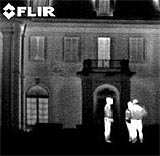 Last week the Ninth Circuit upheld the conviction of Zhi Yong Guo for unlicensed exports of thermal imaging cameras in violation of the International Emergency Economic Powers Act. According to the facts recited by the Ninth Circuit, Mr. Zhi was a Chinese citizen who enlisted a friend, Tai Wei Chao, a United States citizen working in China, to assist him in the purchase of the thermal imaging cameras. Mr. Tai, in turn, enlisted the help of a printing business in California which ordered the cameras and had them shipped to its address in California. The printing company then exported the camera to Tai in China, who thereafter delivered the cameras to Zhi in exchange for a commission.
Last week the Ninth Circuit upheld the conviction of Zhi Yong Guo for unlicensed exports of thermal imaging cameras in violation of the International Emergency Economic Powers Act. According to the facts recited by the Ninth Circuit, Mr. Zhi was a Chinese citizen who enlisted a friend, Tai Wei Chao, a United States citizen working in China, to assist him in the purchase of the thermal imaging cameras. Mr. Tai, in turn, enlisted the help of a printing business in California which ordered the cameras and had them shipped to its address in California. The printing company then exported the camera to Tai in China, who thereafter delivered the cameras to Zhi in exchange for a commission.
The court then notes:
[Tai’s] order aroused the suspicions of FLIR’s export compliance staff. They thought it strange that a printing company needed highly developed thermal imaging cameras. FLIR alerted the Department of Commerce to [Tai’s] order, and agents from the Department of Commerce began to track [Tai’s] activities
Thereafter Zhi and Tai travelled to the United States to pick up more cameras that had been ordered from the printing company. Both men packed the cameras in their luggage and then were arrested at the airport by the friendly folks from ICE. The lower court convicted Zhi for the exports, and the appeal to the Ninth Circuit followed.
Zhi’s lawyers appealed on the ground that the statute under which Zhi was convicted was unconstitutionally vague. The basis of the vagueness argument was that a number of sources needed to be consulted to figure out that the export was a crime:
To understand the crime with which Defendant was charged, one must look at four sources and read them together: the statute, § 1705(a); Executive Order No. 13,222; and two implementing regulations, the Commerce Control List in 15 C.F.R. Part 774 and the Commerce Country Chart in 15 C.F.R. Part 738.
The court easily dismissed Zhi’s efforts to confuse complexity with vagueness:
But a statute does not fail the vagueness test simply because it involves a complex regulatory scheme, or requires that several sources be read together, and Defendant has not directed us to a single case in which we have held otherwise.
The final blow to Zhi’s vagueness argument was the scienter requirement for conviction
The requirement that [the statute] places on the government to prove Defendant’s knowledge of the law ‘mitigate[s] a law’s vagueness, especially with respect to the adequacy of notice to the complainant that his conduct is proscribed.
Although the court’s opinion does not discuss the evidence used by the lower court to find that the defendant knew that the exports were illegal, that criminal intent was likely inferred from Zhi’s numerous prior unsuccessful efforts to obtain the cameras from the United States. The court also notes that Zhi concealed the cameras in shoes that he packed in his suitcase.
 Permalink
Permalink
Copyright © 2011 Clif Burns. All Rights Reserved.
(No republication, syndication or use permitted without my consent.)

 Posted by
Posted by  Category:
Category: 

